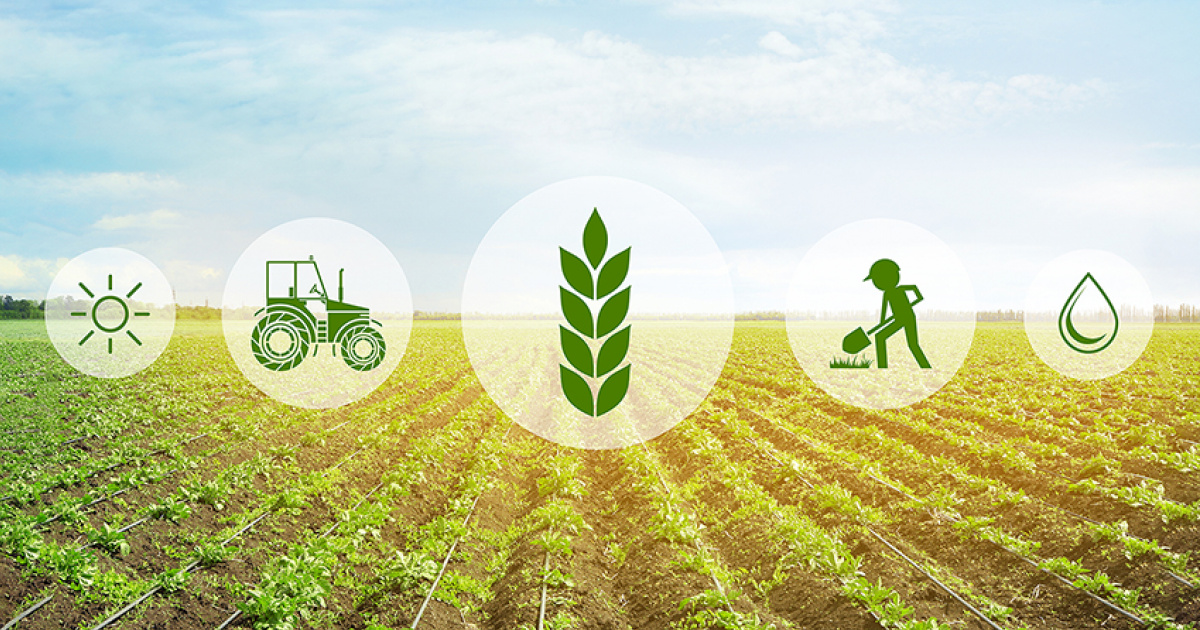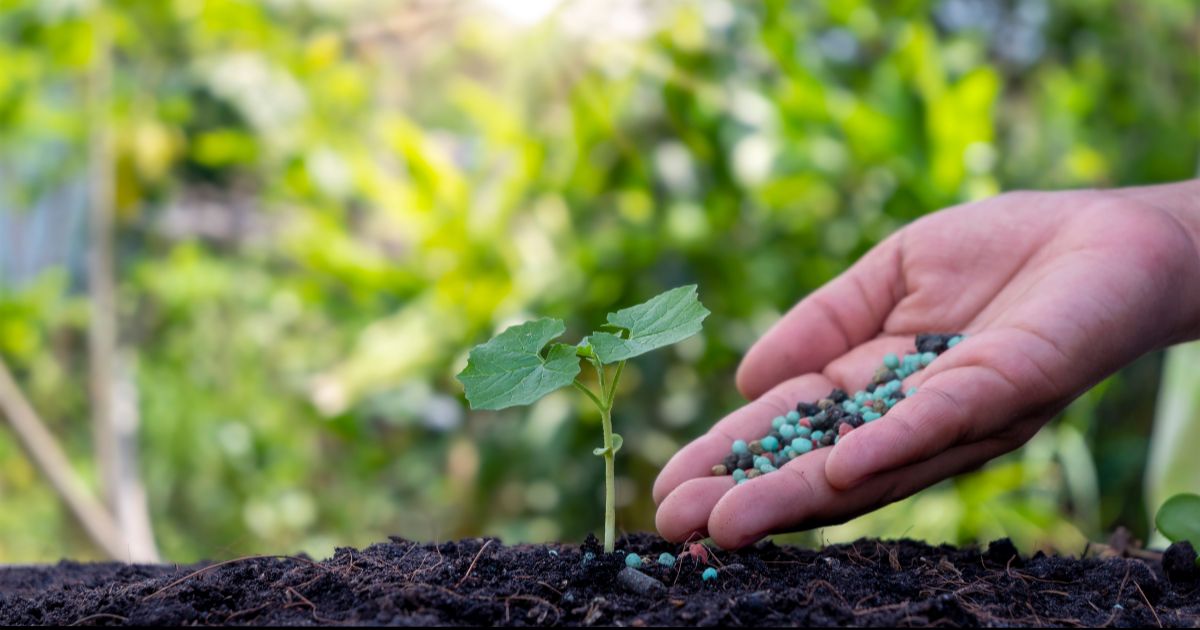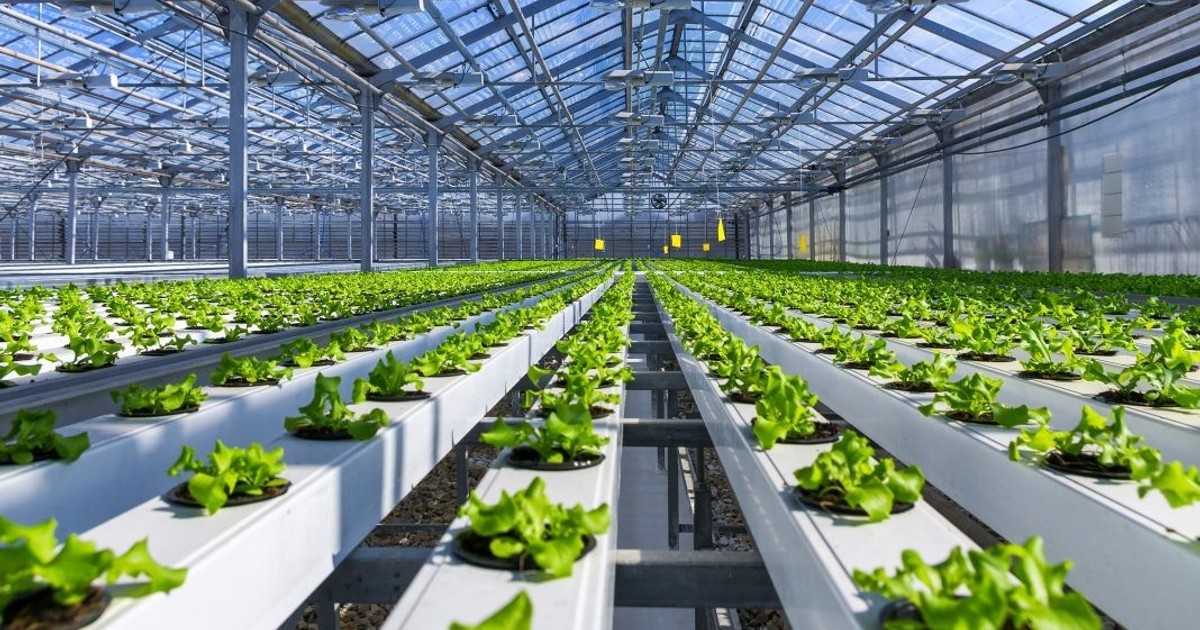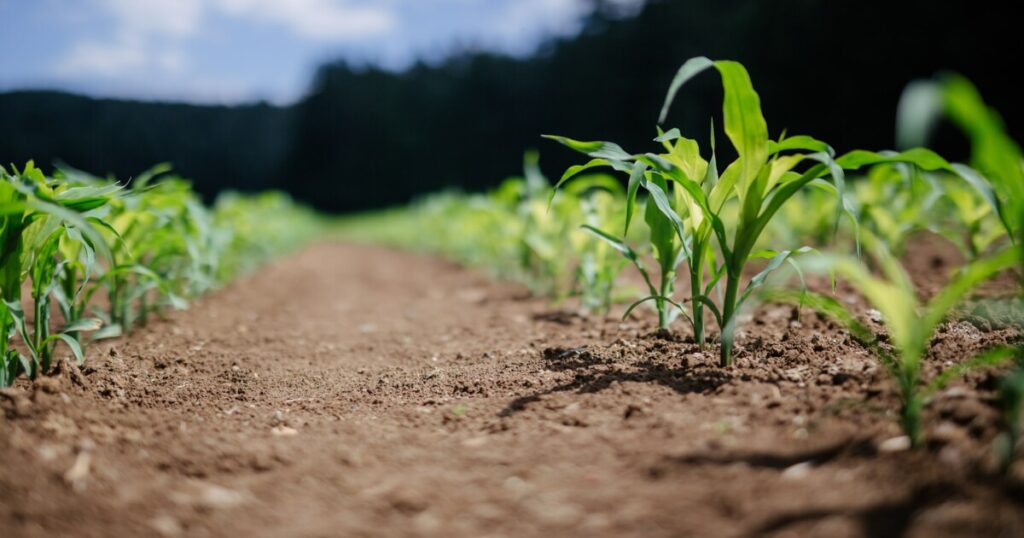Sustainable Agriculture Trends: A Roadmap to Greener Food Production
Sustainable agriculture is no longer confined to the fringes of the agricultural landscape; it’s now at the forefront of our global mission for environmentally responsible food production. This article takes you on a journey through the multifaceted world of sustainable agriculture. From understanding the imperative of sustainable food practices to exploring innovative farming methods, this article serves as a guide towards a more eco-friendly future for our food supply.

The Importance of Sustainable Agriculture
Understanding the Necessity of Sustainable Food Production
Sustainable agriculture isn’t just a trendy phrase; it’s an essential need. In this section, we’ll delve into the pressing reasons behind the demand for sustainable food practices. We’ll explore issues such as food security, climate change, and the depletion of vital resources that underscore the urgency for sustainable agriculture.
Environmental Impact of Conventional Farming Practices
Conventional farming practices have left an indelible mark on the environment. We’ll dissect the ecological repercussions of these methods, from soil erosion and degradation to the pollution of water bodies. The environmental toll of conventional farming practices will be laid bare.
The Call for Change: Why Sustainable Agriculture Matters
Why should we be concerned about sustainable agriculture? This section emphasizes the pivotal role that sustainable practices play in safeguarding our planet and securing a more promising future for generations to come. We’ll underscore the importance of this shift in agricultural paradigms.
Key Principles of Sustainable Agriculture

Soil Health: The Foundation of Sustainable Farming
Healthy soil forms the bedrock of sustainable agriculture. We’ll embark on a journey to discover the vital components of soil health, including organic matter, microorganisms, and nutrient cycling, elucidating how these elements contribute to sustainable farming practices.
Biodiversity: Nurturing Natural Ecosystems
Biodiversity is far more than a buzzword; it’s a fundamental facet of sustainable agriculture. We’ll discuss how diverse ecosystems, encompassing an array of plant species and beneficial insects, are essential to supporting and strengthening sustainable farming practices.
Resource Efficiency: Maximizing Output while Minimizing Input
Efficiency is the linchpin of sustainable agriculture. In this section, we’ll unveil the strategies for optimizing resource utilization, be it water, energy, or land. By making the most of available resources, sustainable farming practices become more attainable.
Climate Resilience: Adapting to Changing Environmental Conditions
As climate patterns shift, farming must adapt accordingly. We’ll navigate the strategies and practices that enable agriculture to become more resilient in the face of unpredictable weather patterns and changing growing seasons.
Innovative Farming Practices

Organic Farming: Beyond Pesticides and Synthetic Fertilizers
Organic farming transcends the avoidance of synthetic chemicals. We’ll explore the tenets of organic agriculture and how they promote sustainability and soil health, all while delivering wholesome produce.
Regenerative Agriculture: Healing the Land and Communities
Regenerative agriculture represents a holistic approach to farming that extends far beyond the soil. In this section, we’ll delve into how it not only rejuvenates the land but also fosters community involvement and economic growth.
Precision Agriculture: Harnessing Technology for Sustainability
Modern technology is catalyzing a revolution in sustainable farming. We’ll scrutinize precision agriculture, an approach that leverages data and digital tools to optimize resource use, augment crop yields, and enhance overall sustainability.
Vertical Farming: Growing Upwards for Efficiency
Vertical farming is literally elevating agriculture. We’ll ascend to new heights to explore how this innovative practice maximizes space, minimizes resource consumption, and mitigates the carbon footprint associated with long-distance food transportation.
Sustainable Crop Management
Crop Rotation: Boosting Soil Fertility and Pest Control
Crop rotation is more than a simple crop shuffle; it’s a sustainable strategy for bolstering soil fertility and reducing the prevalence of pests. We’ll excavate the details of this pivotal practice.
Cover Crops: A Blanket of Benefits for Your Fields
Cover crops aren’t mere camouflage; they’re indispensable components of sustainable agriculture. We’ll unfurl their potential in safeguarding soil health, enhancing nutrient cycling, and averting soil erosion.
Polyculture: The Power of Diversity in Planting
Monoculture has its limitations. In this section, we’ll unearth the secrets of polyculture, which involves planting a diverse array of crops together, fostering ecological resilience, and enhancing overall sustainability.
No-Till Farming: Saving Soil and Slashing Erosion
Traditional tilling may be deeply ingrained, but it’s detrimental to soil structure. We’ll elucidate how the practice of no-till farming not only preserves soil health but also minimizes erosion and conserves precious water resources.
Livestock Farming and Sustainability
Pasture-Raised Livestock: A Kinder, Greener Approach
Our journey takes us to the pasturelands where we explore the benefits of pasture-raised livestock. Beyond just promoting animal welfare, this approach significantly contributes to sustainable farming practices and healthier ecosystems.
Animal Welfare and Sustainable Meat Production
In this section, we delve into the intrinsic link between animal welfare and sustainable meat production. We’ll uncover how ethically treated animals not only ensure their well-being but also positively impact the environment.
Integrated Livestock and Crop Farming: A Symbiotic Relationship
Farm integration extends to both livestock and crops, creating a mutually beneficial relationship. We’ll elucidate how this integration enhances sustainability by minimizing waste and optimizing resource utilization.
Smart Water Management

Drip Irrigation: Precise Water Distribution
In the realm of smart water management, we’ll navigate the intricate systems of drip irrigation. This efficient technique ensures water is delivered directly to plant roots, reducing waste and enhancing overall crop health.
Rainwater Harvesting: Capitalizing on Nature’s Bounty
Rainwater harvesting is a sustainable approach to water management. We’ll descend into the depths of this practice and uncover its various benefits, including a reduced reliance on freshwater sources.
Water Recycling: Reducing Waste and Environmental Impact
Water recycling emerges as a game-changing element of sustainability. We’ll traverse the path of water reuse, which minimizes waste, curtails pollution, and conserves this precious and finite resource.
Agroforestry and Carbon Sequestration
Trees on Farms: Benefits Beyond Shade
Beyond providing shade, trees on farms offer a plethora of benefits. We’ll unveil how they bolster biodiversity, improve soil health, and even augment farm productivity while contributing to sustainable agriculture.
Carbon Farming: Offsetting Emissions with Trees
Carbon farming takes center stage as a critical component of sustainability. We’ll uncover the role of trees in sequestering carbon, mitigating climate change, and reducing our carbon footprint.
Restoring Ecosystems: Agroforestry’s Environmental Impact
Agroforestry transcends trees; it’s about the rejuvenation of ecosystems. We’ll explore how this practice contributes to environmental restoration, promotes biodiversity, and enhances overall sustainability.
Sustainable Supply Chains
Farm-to-Table Movements: Shortening the Food Chain
Farm-to-table movements are shaking up the food supply chain. We’ll follow the path of this revolution, which reduces food miles, supports local communities, and puts fresher produce on your plate.
Local and Seasonal Food: A Sustainable Consumer Choice
In this section, we’ll savor the essence of choosing local and seasonal foods, highlighting the advantages of consuming foods that are in harmony with nature’s natural rhythms and supporting regional agriculture.
Fair Trade and Ethical Sourcing: Supporting Farmers Worldwide
Fair trade practices hold the keys to global sustainability. We’ll explore how these practices ensure that farmers receive fair compensation for their efforts and that products are sourced ethically.
Climate-Smart Agriculture
Adapting to Climate Change: Resilient Farming Practices
The climate is in flux, and agriculture must adapt. In this segment, we’ll explore resilient farming practices that respond to a changing climate, ensuring food production in the face of adversity.
Mitigating Greenhouse Gas Emissions: Sustainability and Climate Action
Agriculture contributes to greenhouse gas emissions. We’ll unravel strategies that tackle this issue head-on, reducing the sector’s environmental footprint and advancing the cause of climate action.
Climate-Smart Crops: Developing Resilient Varieties
The future of agriculture depends on resilient crops. We’ll explore the frontiers of breeding climate-smart crop varieties capable of thriving in the face of climate unpredictability.
Government and Policy Initiatives
Supporting Sustainable Agriculture: Incentives and Programs
Government incentives and programs wield a significant influence on the propagation of sustainable practices. We’ll shed light on initiatives designed to bolster sustainable farming and highlight their impact.
Regulations and Standards: Ensuring Sustainability Compliance
Regulations and standards form the framework for sustaining sustainability. We’ll scrutinize the pivotal role they play in ensuring that agricultural practices adhere to sustainability goals.
The Role of Agriculture in Climate Policy
Agriculture and climate policy are inextricably connected. We’ll chart the role agriculture plays in shaping climate policies and its crucial function in mitigating climate change.
Consumer Awareness and Choices
The Power of Conscious Consumerism
In the age of conscious consumerism, we discover how individual choices can reshape the landscape. We’ll examine how empowered consumers support sustainability through their purchasing decisions.
Sustainable Food Labels: Decoding Eco-Friendly Claims
Food labels can perplex consumers. We’ll unravel the intricacies of eco-friendly labels, ensuring that consumers can make informed choices that align with sustainable practices.
Making Informed Choices: Shopping Sustainably
In the final part of this section, we provide a practical guide for consumers on how to shop sustainably. From selecting local produce to minimizing food waste, we empower consumers to make more sustainable choices.
Challenges and Barriers
Economic Hurdles: The Cost of Sustainable Practices
Sustainable practices often come at a cost. We’ll examine the economic challenges that farmers and consumers encounter when adopting sustainable agriculture, and we’ll explore potential solutions.
Education and Knowledge Gaps: Bridging the Sustainability Divide
Education is the cornerstone of sustainable agriculture. We’ll discuss the knowledge gaps that exist and the imperative to bridge them to promote widespread sustainability.
Global Supply Chain Complexities: A Sustainable Challenge
Global supply chains are rife with complexities. We’ll delve into these intricacies, exploring the challenges in making global supply chains more sustainable and eco-friendly.
Success Stories: Sustainable Farms

Profiles of Farms Leading the Way in Sustainability
We’ll showcase inspiring case studies of farms that have set new benchmarks for sustainability. These profiles will illustrate innovative practices and their positive impacts on the environment and local communities.
Lessons from Pioneers: Tips for Aspiring Sustainable Farmers
Learn from the trailblazers in sustainable agriculture. We’ll share valuable insights and tips for farmers looking to transition into sustainable practices, empowering them on their journey.
Technology and Sustainability
AI and Robotics in Agriculture: Enhancing Efficiency and Precision
The intersection of technology and sustainability is transforming agriculture. We’ll explore how AI and robotics are enhancing efficiency and precision in sustainable farming practices.
Blockchain and Transparency: Trust in the Food Supply Chain
Blockchain technology brings transparency to the food supply chain. We’ll delve into how it benefits both consumers and producers, fostering trust and accountability.
The Future of Sustainable Agriculture: Emerging Technologies
The future of sustainable agriculture is promising, driven by emerging technologies. We’ll explore these cutting-edge innovations that hold the potential to further elevate sustainability in the industry.
The Road Ahead: A Greener Tomorrow
The Vision for Sustainable Agriculture’s Future
In this visionary segment, we’ll sketch the landscape of sustainable agriculture in the future. We’ll highlight the potential benefits for the environment and humanity, painting a brighter and more eco-friendly tomorrow.
Our Role in Shaping a Sustainable Food System
Individuals, farmers, and policymakers all play vital roles in shaping a more sustainable food system. We’ll elucidate how each group can contribute to this transformation.
Concluding Thoughts: Embracing the Journey Towards Greener Food Production
As we culminate this article, we emphasize the significance of embracing the journey towards greener food production. Together, we can build a sustainable and eco-friendly future for all, a future where the food on our plates is not only delicious but also environmentally responsible.
Frequently Asked Questions (FAQs) on Sustainable Agriculture
What is sustainable agriculture?
Sustainable agriculture is an approach to farming that aims to meet current agricultural needs while preserving and enhancing the resources and ecosystems for future generations. It encompasses practices that reduce environmental impact, enhance soil health, and promote economic viability for farmers.
Why is sustainable agriculture important?
Sustainable agriculture is vital to address environmental concerns such as climate change, soil degradation, and water pollution. It ensures long-term food security, promotes biodiversity, and reduces the use of harmful chemicals, making it crucial for a healthier planet.
What are the key principles of sustainable agriculture?
The key principles include maintaining soil health, nurturing biodiversity, optimizing resource use, and adapting to changing environmental conditions. These principles form the foundation of sustainable farming practices.
What are some innovative farming practices in sustainable agriculture?
Innovative practices include organic farming, regenerative agriculture, precision agriculture, and vertical farming. These methods utilize technology and holistic approaches to improve efficiency and reduce environmental impact.
How does sustainable agriculture affect livestock farming?
Sustainable livestock farming focuses on animal welfare, reduced environmental impact, and integration with crop farming. It promotes practices like pasture-raised livestock and integrated farming for mutual benefits.
What are some sustainable water management techniques in agriculture?
Techniques include drip irrigation, rainwater harvesting, and water recycling. These methods help conserve water, reduce waste, and promote efficient water use in agriculture.
How do agroforestry and carbon sequestration contribute to sustainability?
Agroforestry integrates trees with farming to enhance biodiversity, soil quality, and productivity. Carbon farming involves planting trees to sequester carbon, mitigating climate change and promoting sustainability.
What role do sustainable supply chains play in agriculture?
Sustainable supply chains, such as farm-to-table movements, promote local and seasonal food consumption, reduce food miles, and support ethical sourcing. They strengthen local communities and reduce the carbon footprint of food production.
How does sustainable agriculture address climate change?
Sustainable agriculture adapts to changing climate conditions, reduces greenhouse gas emissions, and develops climate-smart crop varieties. It plays a pivotal role in climate mitigation and adaptation.
What is the role of government and policy initiatives in sustainable agriculture?
Government initiatives provide incentives and programs to support sustainable farming practices. Regulations and standards ensure that agricultural practices align with sustainability goals and contribute to climate policy.
How can consumers promote sustainability in agriculture?
Consumers can make conscious choices by buying locally, selecting seasonal produce, and supporting fair trade. They can also make informed choices by decoding eco-friendly food labels and minimizing food waste.
What are the challenges and barriers to sustainable agriculture?
Challenges include the cost of sustainable practices, knowledge gaps, and the complexity of global supply chains. These barriers need to be addressed to foster widespread sustainability.
Can you provide examples of successful sustainable farms?
Successful sustainable farms often include diverse practices such as organic farming, regenerative agriculture, and integrated livestock-crop farming. Profiles of such farms highlight their innovative approaches.
How does technology, such as AI and blockchain, contribute to sustainability in agriculture?
Technology enhances sustainability by improving efficiency and transparency. AI and robotics optimize resource use, while blockchain ensures trust in the food supply chain, both supporting eco-friendly practices.
What does the future of sustainable agriculture look like?
The future of sustainable agriculture holds promise with emerging technologies and a stronger focus on environmental responsibility. It aims to provide healthier, more sustainable food for all, promoting a greener and more eco-friendly world.
Dear reader, we invite you to dive into our blog and explore a rich universe of information about sustainable agriculture. Our journey begins with an introduction that highlights the growing importance of sustainable agriculture on the global stage. From there, you can navigate through topics that cover the fundamental principles, cutting-edge innovations, inspiring stories of sustainable farms, and the essential role you, as a consumer, play in this process. This is your guide to a greener and healthier future in food production. So, don’t miss the opportunity to discover how sustainable agriculture is shaping our world. Join us on this journey and be inspired to make more conscious choices for a more sustainable planet.





